I'm a Nutritionist, and These 7 Eating Habits Help You Lose Weight and Feel Stronger

Making minor tweaks to your daily habits can make a big difference, especially when it comes to your health. Whether you're trying to lose weight, build muscle, or fight fatigue, your eating habits play a crucial role. Tara Collingwood, MS, RDN, CSSD, LD/N, ACSM-CPT, also known as The Diet Diva, is Body Network's resident registered dietitian nutritionist. She is a Board-Certified Sports Dietitian and co-author of Flat Belly Cookbook for Dummies. We recently asked her about the eating habit changes she recommends to most of her clients, and many of them are doable.
Eat More Whole Foods
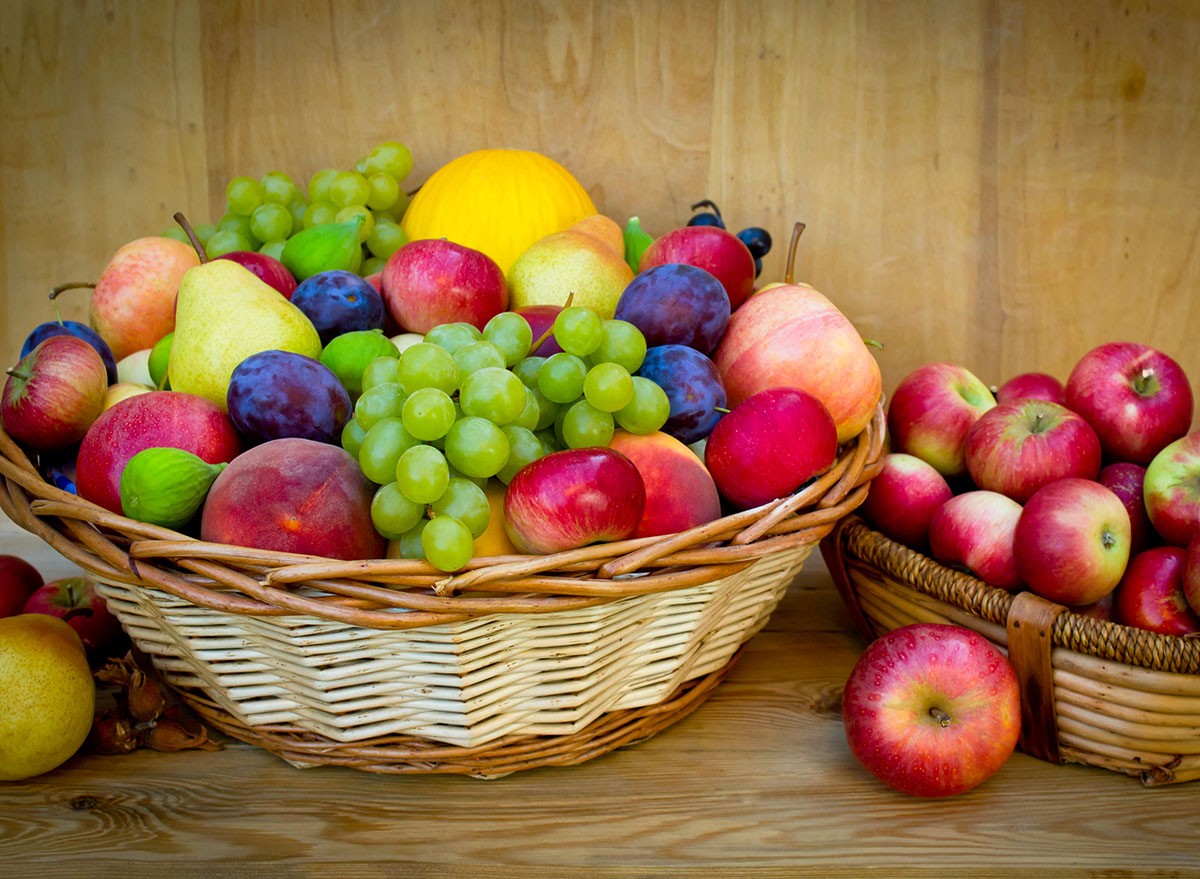
First, eat more whole foods. "Focus on vegetables, fruits, whole grains, lean proteins, and healthy fats. These foods are nutrient-dense and keep you full longer with fewer calories. Load up half your plate with veggies!" suggests Collingwood.
Practice Portion Control
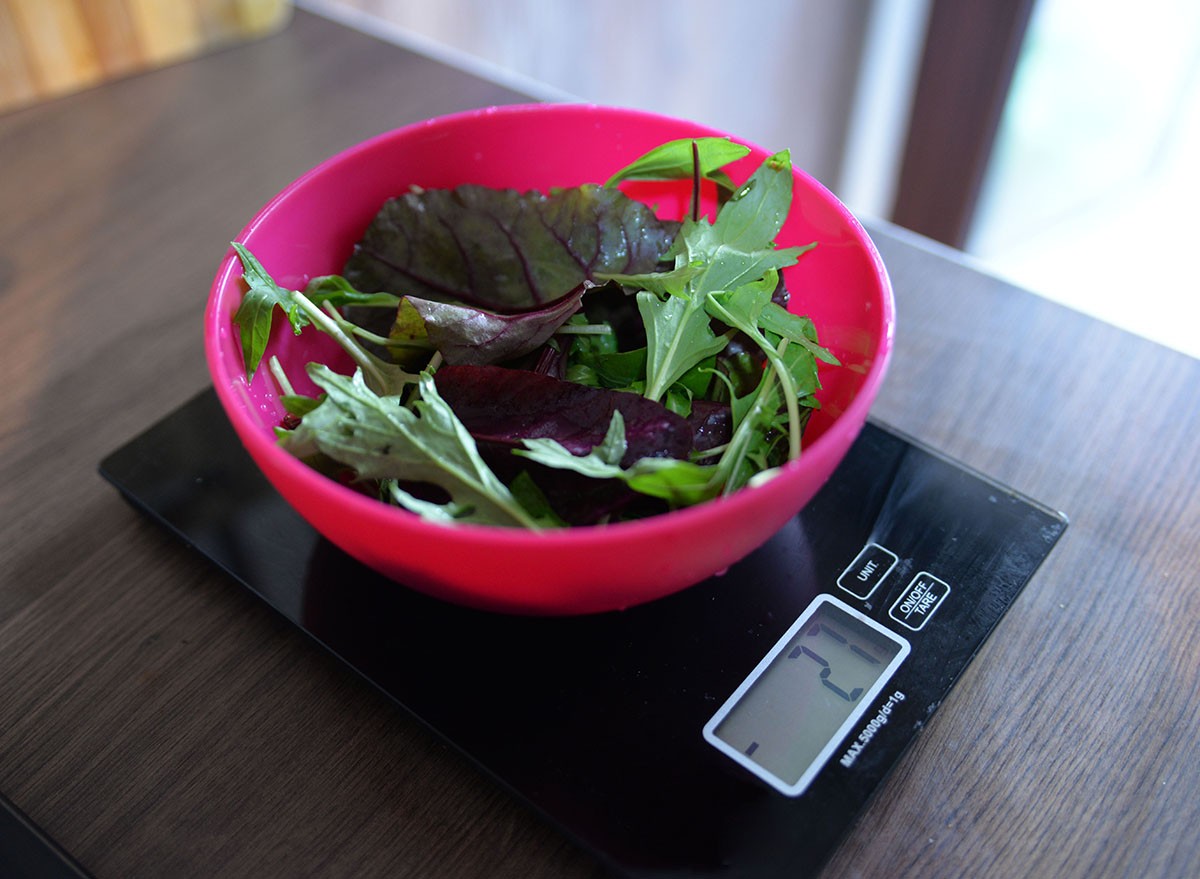
Next, practice portion control. "Use smaller plates or bowls, and serve yourself appropriate portions. Avoid eating straight from the package — it's easy to overdo it without realizing," she suggests. "And just because it's a 'healthy' food doesn't mean you can eat unlimited portions!"
Eat Mindfully and Slowly

Eat mindfully and slowly. "Pay attention to your food while eating — no distractions like phones, TV, or eating in the car. Slower eating helps you recognize fullness and reduces overeating, and you enjoy your food so much more!" she says.
Don't Skip Meals (Especially Breakfast)

Don't skip meals, especially breakfast. "Skipping meals can lead to overeating later. A balanced breakfast can help stabilize blood sugar and reduce cravings," Collingwood says.
Limit Processed and Sugary Foods
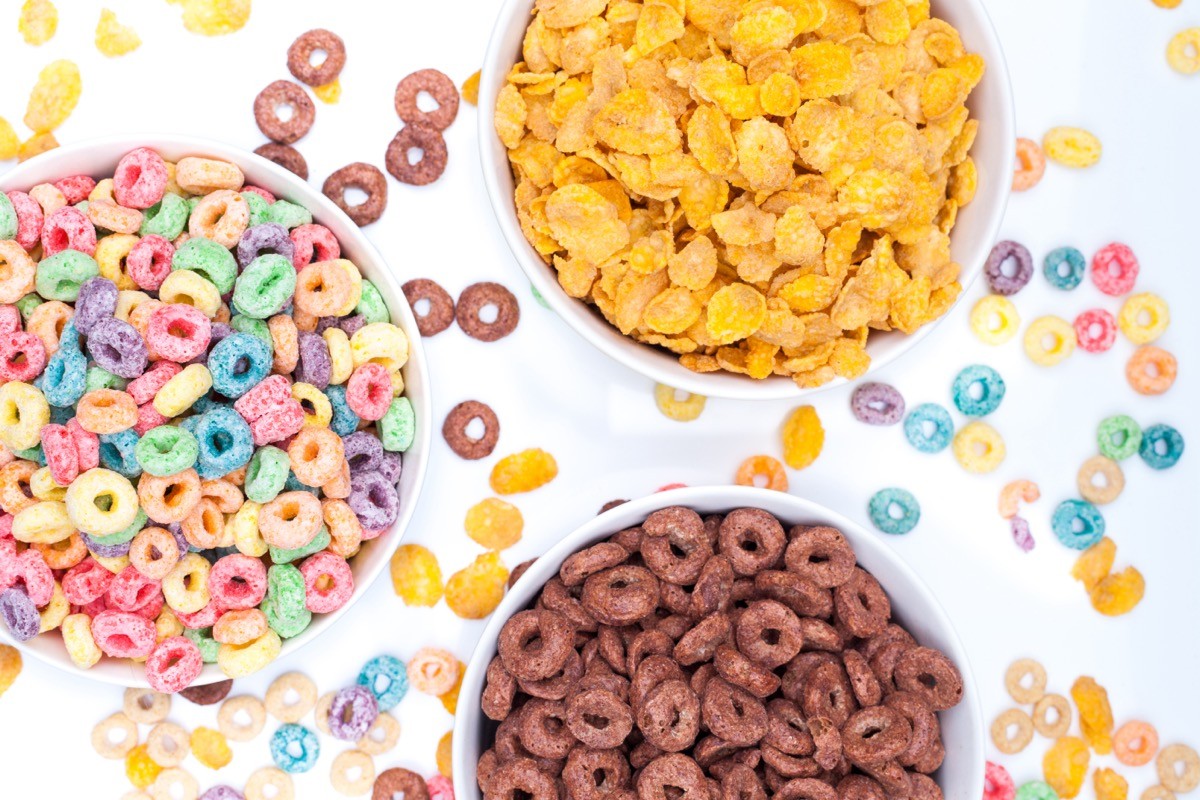
Limit your consumption of processed and sugary foods. "These are often high in empty calories and can cause spikes in blood sugar, leading to hunger crashes. Focus primarily on liquid calories. Aim to drink only calorie-free beverages unless it is milk or 100% juice," she says.
Stay Hydrated

Make sure to stay hydrated. "Drink plenty of water throughout the day. Sometimes thirst is mistaken for hunger — staying hydrated can prevent unnecessary snacking," she says.
Plan and Prep Your Meals
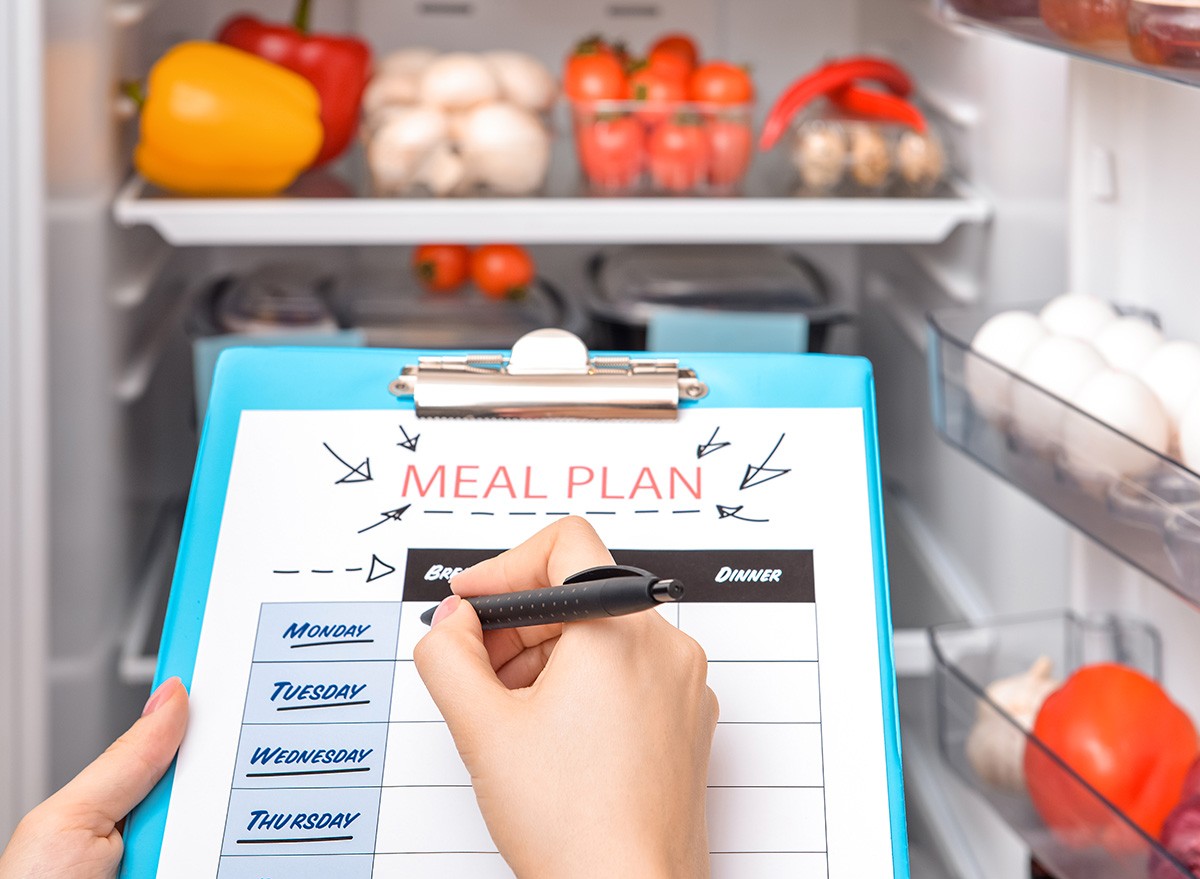
"Preparing meals ahead of time helps you avoid impulse eating or relying on takeout. You're more likely to stick to healthy choices when they're convenient and ready to go," she says.
BONUS TIP: Track Your Food
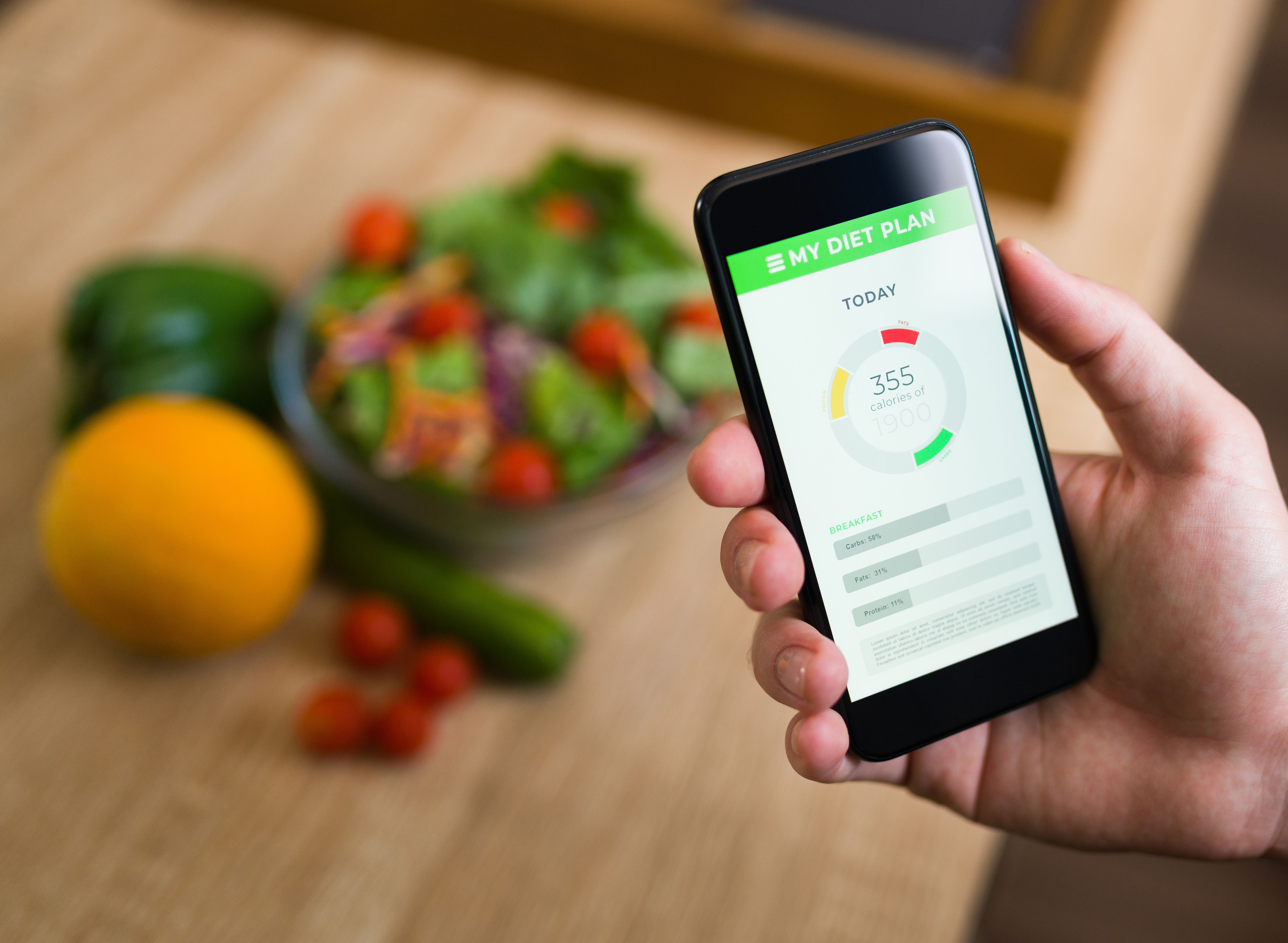
And a bonus tip? "Keep track of what you are eating with a food tracking app so you can realize in real time how you are doing on intake as the day goes on so you can increase awareness and make adjustments as the day goes on to fit into a budget," says Collingwood. And if you enjoyed this article, take advantage of these 15 Quick Ways to Lose Body Fat Percentage in a Week.




